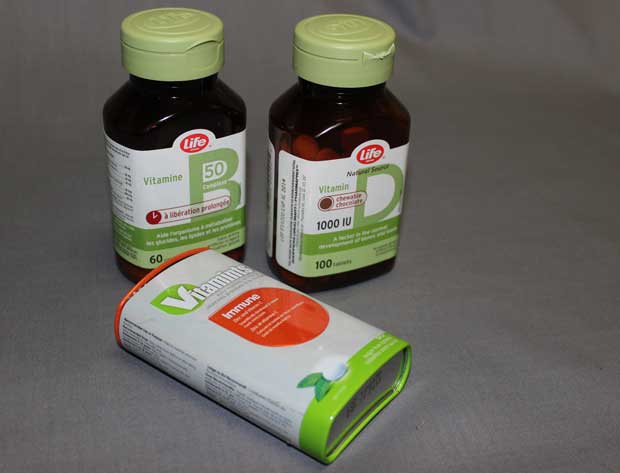
DENVER – HEALTH – Taking vitamin D supplements could slow or even reverse the progression of less aggressive, or low-grade, prostate tumors without the need for surgery or radiation, a scientist will report today.
His team will describe the approach in one of nearly 11,000 presentations at the 249th National Meeting & Exposition of the American Chemical Society (ACS), the world’s largest scientific society. The meeting is being held here through Thursday.
If a tumor is present in a prostate biopsy, a pathologist grades its aggressiveness on a scale known as the Gleason Grading System. Tumors with Gleason scores of 7 and above are considered aggressive and likely to spread, requiring surgical removal of the prostate gland (prostatectomy) or radiation therapy. In contrast, prostate tumors with Gleason scores of 6 and below are less aggressive, and in some cases may cause no symptoms or health problems for the duration of the man’s life.
In cases of low-grade prostate cancer, many urologists do not treat the disease, but instead do what’s called “active surveillance,” says Bruce Hollis, Ph.D., who is at the Medical University of South Carolina. “The cure — meaning surgery or radiation — is probably worse than the disease, so they wait a year and then do another biopsy to see where the patient stands.”
However, knowing that they have even low-grade prostate cancer can cause patients and their families excessive anxiety, which prompts some of the men to undergo an elective prostatectomy, despite the risk of complications such as infection, urinary incontinence and erectile dysfunction. But a man must wait 60 days from the time of his biopsy before he can undergo a prostatectomy, so that inflammation from the biopsy can subside.
Hollis wondered if giving these men vitamin D supplements during the 60-day waiting period would affect their prostate cancer. His previous research had shown that when men with low-grade prostate cancer took vitamin D supplements for a year, 55 percent of them showed decreased Gleason scores or even complete disappearance of their tumors compared to their biopsies a year before (J. Clin. Endocrinol. Metab., 2012, DOI: 10.1210/jc.2012-1451).
In a new randomized, controlled clinical trial, his team assigned 37 men undergoing elective prostatectomies either to a group that received 4,000 U of vitamin D per day, or to a placebo group that didn’t receive vitamin D. The men’s prostate glands were removed and examined 60 days later.
Preliminary results from this study indicate that many of the men who received vitamin D showed improvements in their prostate tumors, whereas the tumors in the placebo group either stayed the same or got worse. Also, vitamin D caused dramatic changes in the expression levels of many cell lipids and proteins, particularly those involved in inflammation. “Cancer is associated with inflammation, especially in the prostate gland,” says Hollis. “Vitamin D is really fighting this inflammation within the gland.”
The protein most strongly induced by vitamin D was one called growth differentiation factor 15 (GDF15). Previous studies by other groups showed that GDF15 dials down inflammation, and many aggressive prostate cancers make little or no GDF15.
The new research suggests that vitamin D supplementation may improve low-grade prostate cancers by reducing inflammation, perhaps lessening the need for eventual surgery or radiation treatment. “We don’t know yet whether vitamin D treats or prevents prostate cancer,” says Hollis. “At the minimum, what it may do is keep lower-grade prostate cancers from going ballistic.”
Hollis notes that the dosage of vitamin D administered in the study — 4,000 U — is well below the 10,000–20,000 U that the human body can make from daily sun exposure. “We’re treating these guys with normal body levels of vitamin D,” he says. “We haven’t even moved into the pharmacological levels yet.”
The researchers acknowledge funding from Gateway for Cancer Research, the Department of Veterans Affairs, National Institutes of Health and South Carolina Clinical and Translational Research Institute.






